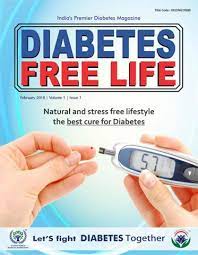Today, Nigeria joins the rest of the global community in marking this year’s World Diabetes Day (WDD). The annual campaign is spearheaded by the International Diabetes Federation (IDF) in conjunction with the World Health Organisation (WHO) and was created in 1991 in response to growing concerns about the escalating health threat that diabetes poses across the globe.
The theme of this year’s commemoration is “Access to Diabetes Care”. This year’s celebration will focus on importance of improving access to diabetes for all and the need for action to prevent the disease and its complications. Fundamental components of diabetes care include access to insulin and medication, education and psychological support.
This year also marks the 102 years since the discovery of insulin. Before the finding, a diabetes diagnosis was a death sentence. The breakthrough by scientists Frederic Banting and Charles Best in 1921 has saved millions of lives and is often hailed as one of the greatest medical advancements of our times.
A diabetic person is a harbourer of high blood glucose either because the system is not producing enough insulin, or because the body does not respond properly to insulin.
According to available statistics, there are about 415m people living with the ailment globally and the figure is projected to reach 642m by 2040. As at 2015, the sub-Saharan Africa harboured more than 14m sufferers and the figure is expected to double by 2040. Presently, over five million Nigerians are sickened by the disease, half of whom are unaware of their status which unfortunately leads to their death.
The incurable disease is categorised into types 1, 2, 3 and 4 which affect children, adults and pregnant women. Experts agree that there is no better treatment for it than frequent taking of medication according to prescription and eating the right foods.
The non-communicable malady is now prevalent among adolescents and young adults and it is attributed partly to the rapid socio-cultural change experienced in most developing countries leading to the adoption of new lifestyles and risky behaviours. The modifiable shared risk factors for diabetes include tobacco use, unhealthy nutrition, lack of physical activity and harmful use of alcohol. If the disease is discovered late or managed poorly, it could lead to amputation of the lower limb, chronic renal failure, hypertension, visual impairment or blindness and multiple organ damage associated with atherosclerosis among others.
Diabetes, genetic or acquired, is a disorder in metabolism in which sugar and starch are not properly absorbed from the blood, causing excessive thirst and the production of large amounts of urine. However, it is not surprising that the disease is conquering so many Nigerians. Health awareness is not common even among the urban dwellers and the enlightened. Grinding poverty has overwhelmed the vast majority of Nigerians. Oppressed for too long by successive bad governments, ordinary Nigerians have gradually lost the sense of keeping fit by eating good food and engaging in exercises as they struggle daily just to survive. Ironically, the rich are also susceptible to diabetes.
As rightly observed by experts, a large number of those afflicted by the disease go about unaware of the time-bomb ticking around them. Nigerians ought to take their health seriously. Many people, especially in the rural areas, do not have access to experts who can diagnose the disease. Some are quick to blame witches in the village or the enemy next door for their afflictions. When some finally get to know that they are carriers of the ailment, it is either too late for them to commence useful treatment or they do not have the resources to manage it.
Fifty-eight years after independence, Nigeria is still lagging behind in all indices of human development. The health centres in both rural and urban communities still lack adequate facilities to handle such terminal diseases as diabetes. Then, there are the hiccups of strikes by health personnel which have become the hallmark of the sector, leading many who can afford it to seek medical attention overseas. Others patronise quacks or resort to guesswork and self-medication.
Government at all levels has the primary responsibility to provide functional and adequate healthcare for the people. But it is pertinent to point out that Nigerians must fully realise the importance of physical exercise, aside from good nutrition, as a precondition for controlling or staving off the disease. Those who can afford it should make conscious efforts to see that they eat balanced diet, avoid junk meals and soft drinks that can lead to obesity or being overweight and engage in regular physical exercises in order to keep their bodies fit.
Be that as it may, the good news is that with good self-management and professional support from healthcare givers, people with diabetes can live a long, healthy life.




